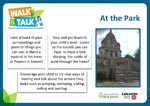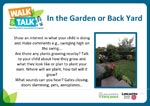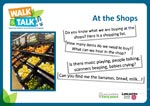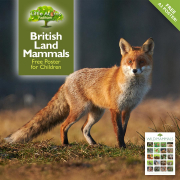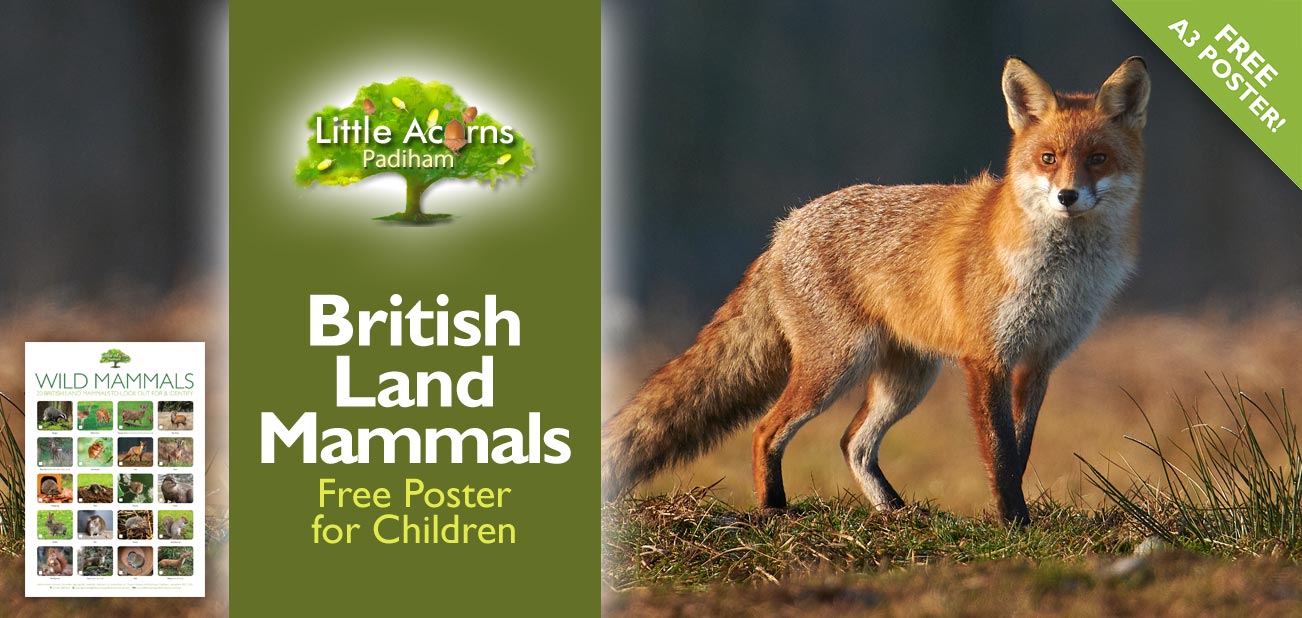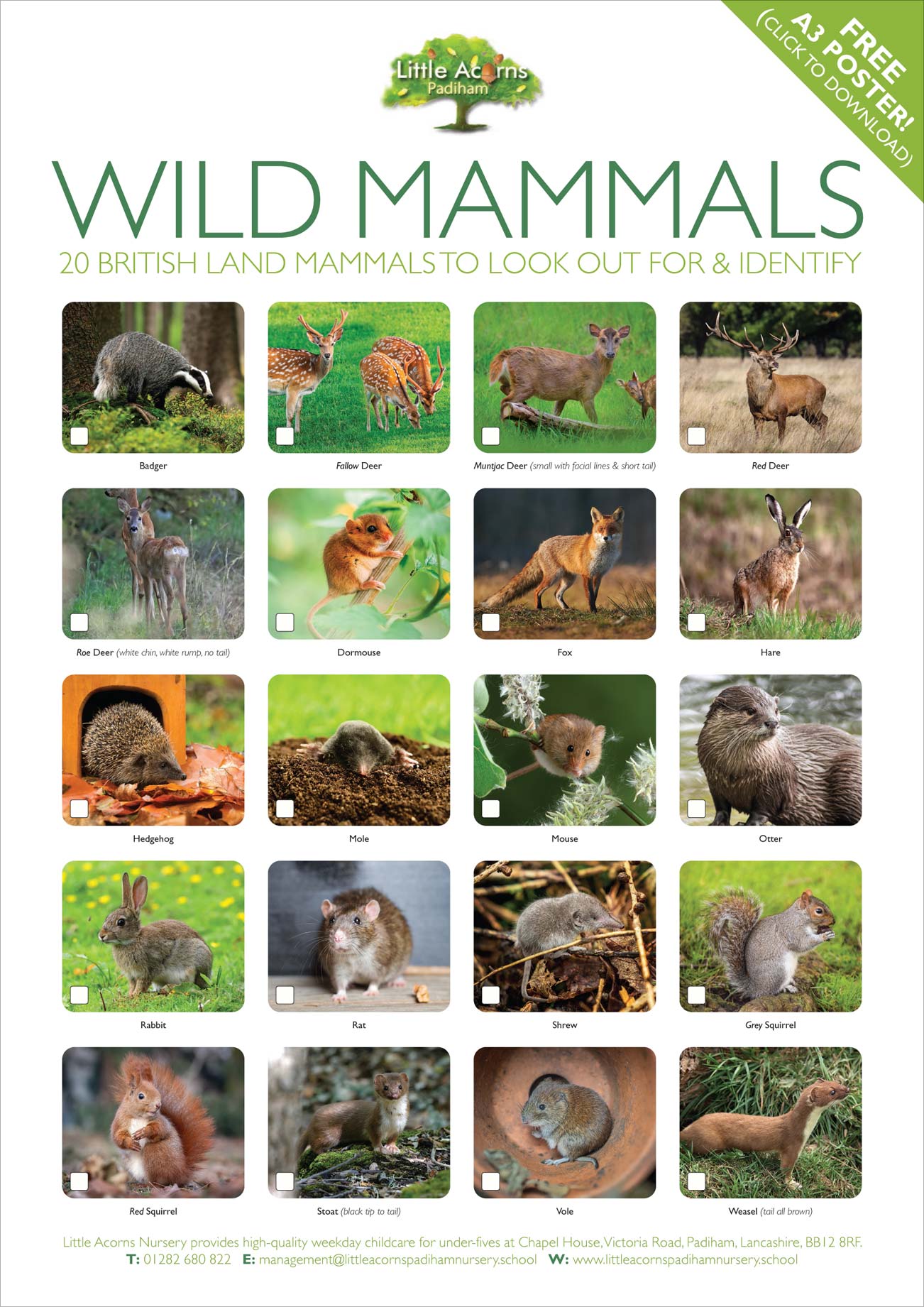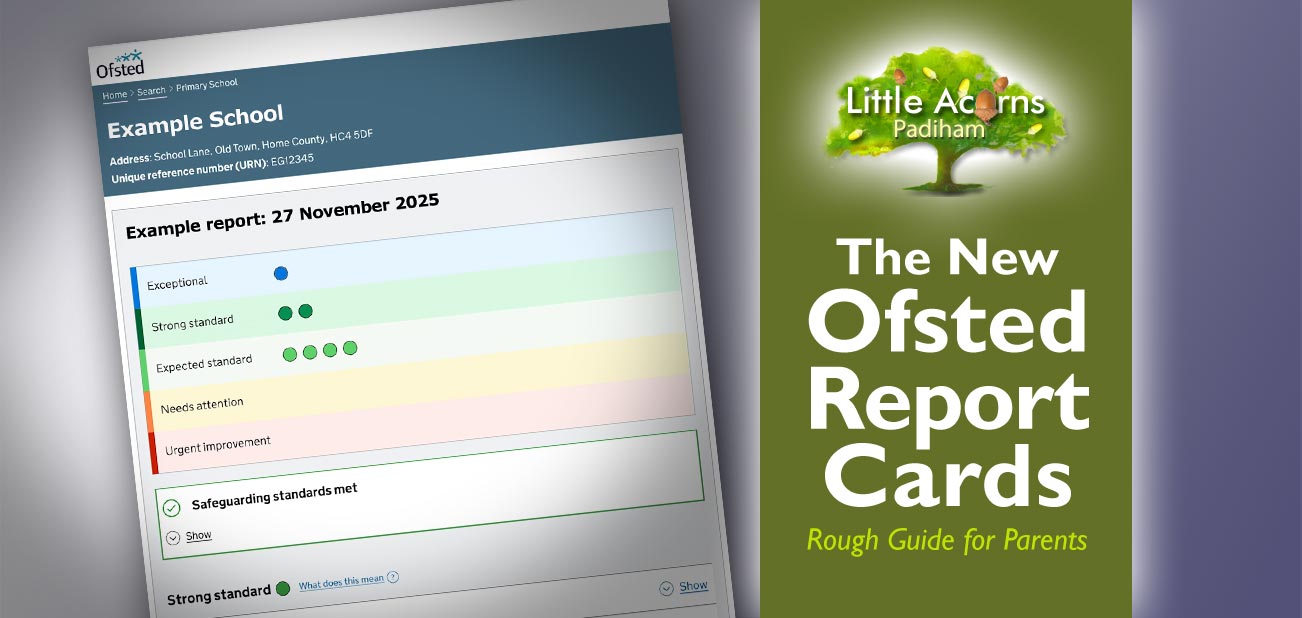
Since November 2025, Ofsted has been rolling out new-style assessments for early years providers, schools, higher education settings, and skills providers. Parents will therefore start to notice the new way of presenting Ofsted ratings. They are multifaceted, with comprehensive detail, and also provide contextual information and metrics that give greater meaning to assessment conclusions.
Key to the new Ofsted assessments is the new, multi-part Report Card. This combines a quick, colour-coded snapshot of the setting’s performance, with sub-sections that delve deeper into how the setting measured up against key areas. All of this replaces the historical approach that, until now, simply used short, some would say controversial, one or two-word “judgements” — Outstanding, Good, Requires Improvement, or Inadequate. Today, we take a look at the new Report Card, explaining how it is presented and what information this new assessment reporting will contain.
The New Ofsted ‘Report Card’
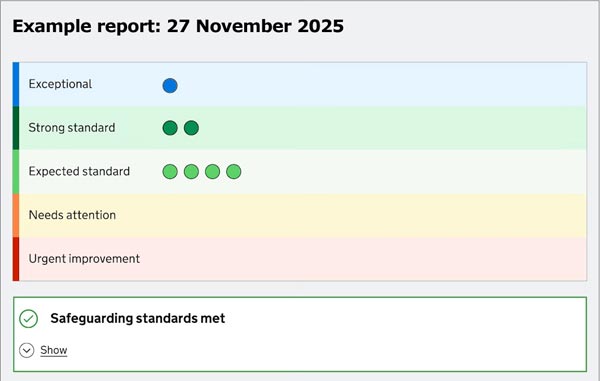
As you can see in our example, the most prominent part of Ofsted’s new Report Card is a colour-coded area that indicates how the setting performed, at a glance. Coloured dots represent key areas and what ‘grade’ they achieved, although they’re not named at this stage. The distribution of coloured dots is a way to see, very quickly, how a setting is performing overall.
- Areas judged to be ‘Exceptional’ are denoted by blue dots;
- Those with a ‘Strong standard’ are awarded dark green dots;
- Those reaching the ‘Expected standard’ are indicated by bright green dots;
- If an area ‘Needs attention’, it’s indicated by an orange dot;
- And finally, areas that need ‘Urgent improvement’ will be shown as a red dot.
If all is well at a setting, parents will see just greens and, if exceptional in any areas, blues. A good facet of this new approach is that, if a setting is doing well in many of its key areas, it will no longer “live or die” if there is a shortcoming in another key area. Yes, they may see an orange or red dot, but they’ll also be able to instantly spot that the setting is doing well in other areas (green and blue dots). So, it’s a more comprehensive and balanced way to represent a setting.
What Key Areas do the Coloured Dots Represent?
The coloured dots represent defined “key areas” assessed by Ofsted inspectors. The key areas vary a little depending on the type of setting being assessed, as listed in the tabulated sections below.
Safeguarding on the Report Card
Safeguarding features prominently on the Report Card for all types of settings. It does so in a separate section of its own, below the top colour-coded section. There are just two possibilities for the assessment of the setting’s safeguarding: either Met or Not Met. And, as with many of the subsequent inclusions on the Report Card, the Safeguarding box is expandable. Users can click the ‘Show’ link to view detailed notes explaining what the finding means (see example below) and a further link that explains how safeguarding was evaluated by Ofsted. Both links can then be closed to return to the more compact view.

The Key Areas Section of the Report Card
After the Safeguarding section comes the individual ‘key areas’ that we listed above and which were graded higher up in the colour-coded section. Grouped by attainment/colour (best/blue at the top), each now has an expandable box of its own. As with the Safeguarding box, users can click a ‘Show’ link that enables detailed Ofsted notes to be displayed. Such notes go into great detail about Ofsted’s findings about the metric in question. So, if the attainment is high, parents will be able to see how and why Ofsted thinks that to be the case. Likewise, if the attainment is lacking in some way, parents can see why Ofsted thought so and what they suggest the setting needs to do to improve matters.
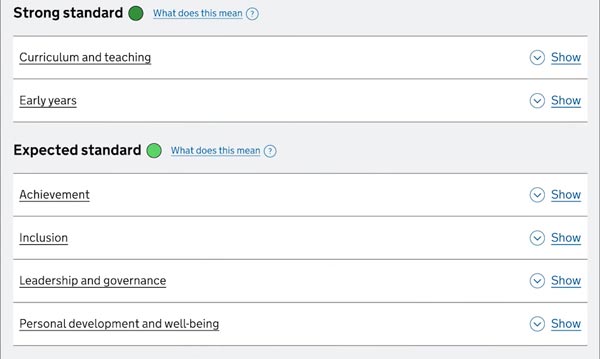
Each of the sections expands as shown for the ‘Inclusion’ example below.
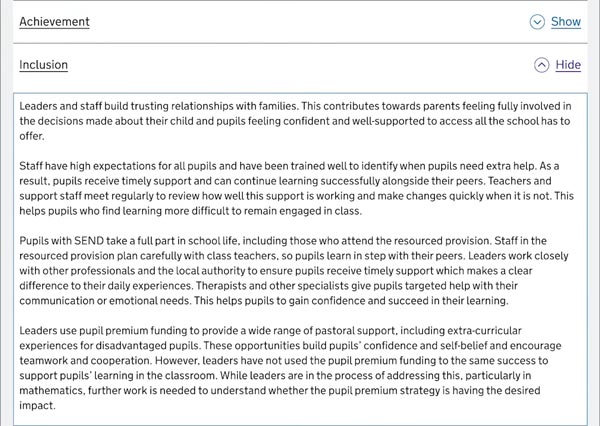
What It’s Like at the Setting & More
Below the Key Areas sections come 3 useful inclusions:
- The ‘What it’s like to be a pupil at this [setting]’ section does ‘exactly what it says on the tin’ and, if expanded to show the detail, explains what life is like at the nursery, school, further education setting or skills provider in question. It’s a new and useful inclusion for parents to consider as part of their search for an appropriate provider for their child.
- The ‘Next Steps’ section provides recommendations from Ofsted about what the provider can do to improve things (as appropriate).
- The ‘About this inspection’ section comes next and, if expanded, explains more about the inspection process on the day the Ofsted Inspector visited.
- The report card then goes on to name the Inspector(s), as well as providing a link to download the Inspection Report as an Acrobat PDF file.
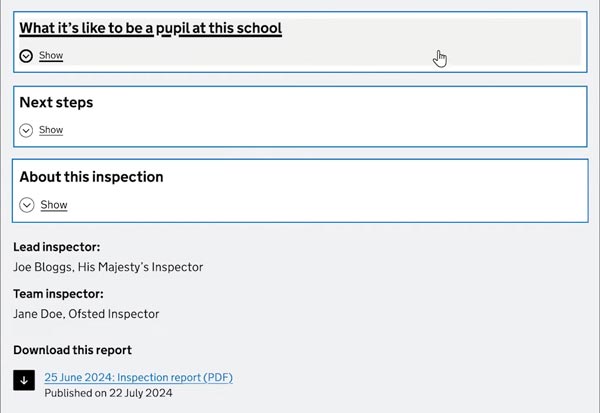
The Facts & Figures Section
The final section in the Report Card contains contextual information that provides a kind of backdrop to the setting’s situation. Examples include the number of pupils attending, the capacity of the setting, the percentage of pupils with SEND and/or an EHC plan, whether the setting is in a deprived area, and so on. Click here to view an example. Such facts and figures provide some important context, including the highlighting of some challenges they may face, and may at least partly explain performance. As such, they are a useful set of new metrics for parents to factor in when finding a provider for their child.
Little Acorns Nursery, Padiham
Rated as a ‘Good Provider’ by Ofsted
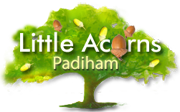
 Little Acorns Nursery, Padiham, has not yet had a new-style Ofsted assessment. However, the setting has a ‘Good Provider’ status following the most recent Ofsted inspection back in May (2025). Indeed, Ofsted rated the nursery as ‘Good’ in every category. What’s more, at the time of writing, the nursery has a review rating of 5 out of 5 on Google and 10 out of 10 on DayNurseries.co.uk — it simply doesn’t get better than that! Parents can therefore rest assured that, if they send their child to Little Acorns Nursery in Padiham, they’ll be in safe and caring hands at a childcare setting that does everything it can to nurture their learning and development. That’s all in a safe, homely, and stimulating environment.
Little Acorns Nursery, Padiham, has not yet had a new-style Ofsted assessment. However, the setting has a ‘Good Provider’ status following the most recent Ofsted inspection back in May (2025). Indeed, Ofsted rated the nursery as ‘Good’ in every category. What’s more, at the time of writing, the nursery has a review rating of 5 out of 5 on Google and 10 out of 10 on DayNurseries.co.uk — it simply doesn’t get better than that! Parents can therefore rest assured that, if they send their child to Little Acorns Nursery in Padiham, they’ll be in safe and caring hands at a childcare setting that does everything it can to nurture their learning and development. That’s all in a safe, homely, and stimulating environment.
To register your interest for a nursery place, organise a tour of the setting, or ask any questions, please get in touch using one of the options below. We can’t wait to meet you and your child!
Families outside Padiham, but living in nearby locations, may also find Little Acorns Nursery convenient for their childcare needs, for example, those in Burnley, Hapton, Rose Grove, Altham, Huncoat, Read, Simonstone, Sabden, Higham, and Wood End.
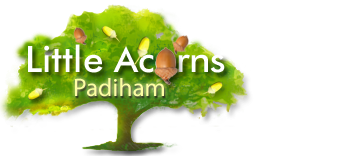
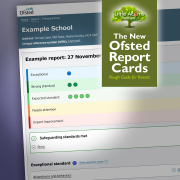
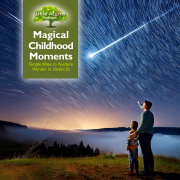

 Childhood is full of magic — not just the kind found in fairy tales, but also the quiet, everyday kind that’s instinctively fed by a child’s curiosity. Little ones have an innate sense of wonder; the world is vast, mysterious, and full of possibility. Whether they’ve discovered a camouflaged moth on a tree trunk, a rainbow stretching across the sky, or the miraculous shape of a fresh snowflake, each can feel like an amazing discovery to a young child. And they really are amazing!
Childhood is full of magic — not just the kind found in fairy tales, but also the quiet, everyday kind that’s instinctively fed by a child’s curiosity. Little ones have an innate sense of wonder; the world is vast, mysterious, and full of possibility. Whether they’ve discovered a camouflaged moth on a tree trunk, a rainbow stretching across the sky, or the miraculous shape of a fresh snowflake, each can feel like an amazing discovery to a young child. And they really are amazing!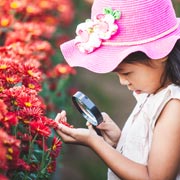 Young children experience the world differently to adults. They notice details we’ve long since stopped paying attention to — the way water ripples in a puddle, a cloud that may be shaped like an animal, or the captivating sparkle of a ‘special’ rock as it glints in the sun. To little ones, these are truly magical. What’s more, they’re all around us but, with our busy lives, go unnoticed so often by adults.
Young children experience the world differently to adults. They notice details we’ve long since stopped paying attention to — the way water ripples in a puddle, a cloud that may be shaped like an animal, or the captivating sparkle of a ‘special’ rock as it glints in the sun. To little ones, these are truly magical. What’s more, they’re all around us but, with our busy lives, go unnoticed so often by adults. The
The  Starry nights lend us a good example. On a warm summer night, perhaps wrap up in blankets, grab a hot chocolate, and sit outside together to watch the stars. See if your child can spot a satellite on its quiet journey, or a shooting star racing across the night sky. Discuss what it might be like up there in space. Ponder whether there are other creatures on faraway planets looking back at us — perhaps a tiny speck of light to them, just as they are to us. We don’t have all the answers to such big questions, but that’s OK — it demonstrates the enormity and complexity of life and the universe — and can only increase the child’s sense of wonder.
Starry nights lend us a good example. On a warm summer night, perhaps wrap up in blankets, grab a hot chocolate, and sit outside together to watch the stars. See if your child can spot a satellite on its quiet journey, or a shooting star racing across the night sky. Discuss what it might be like up there in space. Ponder whether there are other creatures on faraway planets looking back at us — perhaps a tiny speck of light to them, just as they are to us. We don’t have all the answers to such big questions, but that’s OK — it demonstrates the enormity and complexity of life and the universe — and can only increase the child’s sense of wonder.
 Magical memories often come not just from what we do with our children, but how we do it. Giving a child and their special discoveries your full attention, feeding back, pondering questions, and marvelling together, all make such moments more special and memorable. The real magic lies in connection — in being fully present with your child, sharing laughter, the sense of wonder, and the warmth of togetherness. The most meaningful memories from childhood need not come from big events or expensive outings — they often come from simple moments that make a child feel curious, loved, and seen.
Magical memories often come not just from what we do with our children, but how we do it. Giving a child and their special discoveries your full attention, feeding back, pondering questions, and marvelling together, all make such moments more special and memorable. The real magic lies in connection — in being fully present with your child, sharing laughter, the sense of wonder, and the warmth of togetherness. The most meaningful memories from childhood need not come from big events or expensive outings — they often come from simple moments that make a child feel curious, loved, and seen.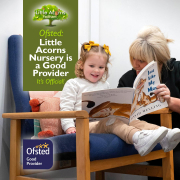
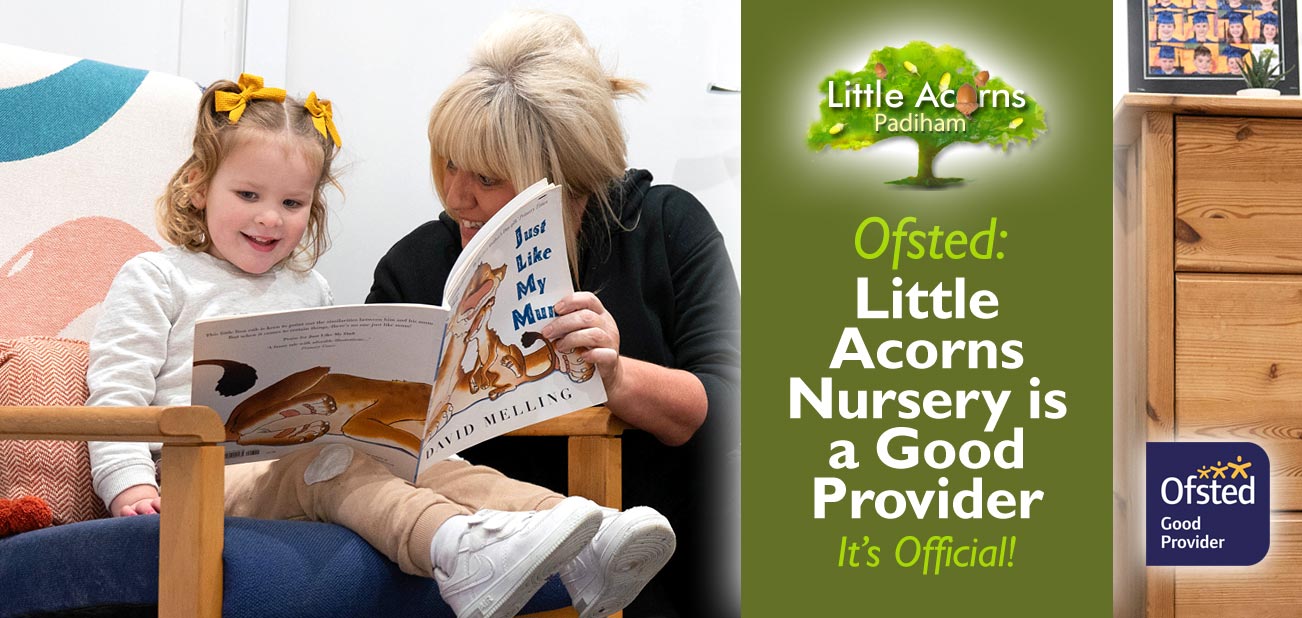
 We’re delighted to announce that Ofsted has published a stunning report for Little Acorns Nursery, Padiham. It’s now official that this excellent Padiham childcare setting is a ‘Good Provider’ — in every category! What’s more, the Ofsted inspector published some wonderfully positive comments about the nursery, staff, and quality of care as part of the report. Their findings are a testament to the high quality of the setting, the professionalism of its early years practitioners and leadership, and the positive impact the nursery has on babies and children in its care. Today, we take a deep dive into the details.
We’re delighted to announce that Ofsted has published a stunning report for Little Acorns Nursery, Padiham. It’s now official that this excellent Padiham childcare setting is a ‘Good Provider’ — in every category! What’s more, the Ofsted inspector published some wonderfully positive comments about the nursery, staff, and quality of care as part of the report. Their findings are a testament to the high quality of the setting, the professionalism of its early years practitioners and leadership, and the positive impact the nursery has on babies and children in its care. Today, we take a deep dive into the details.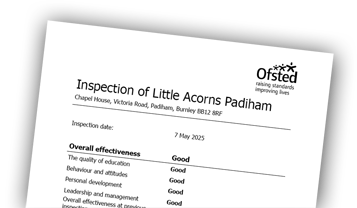
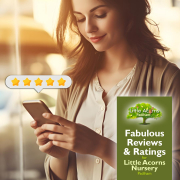

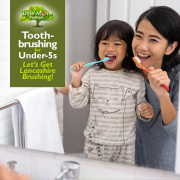
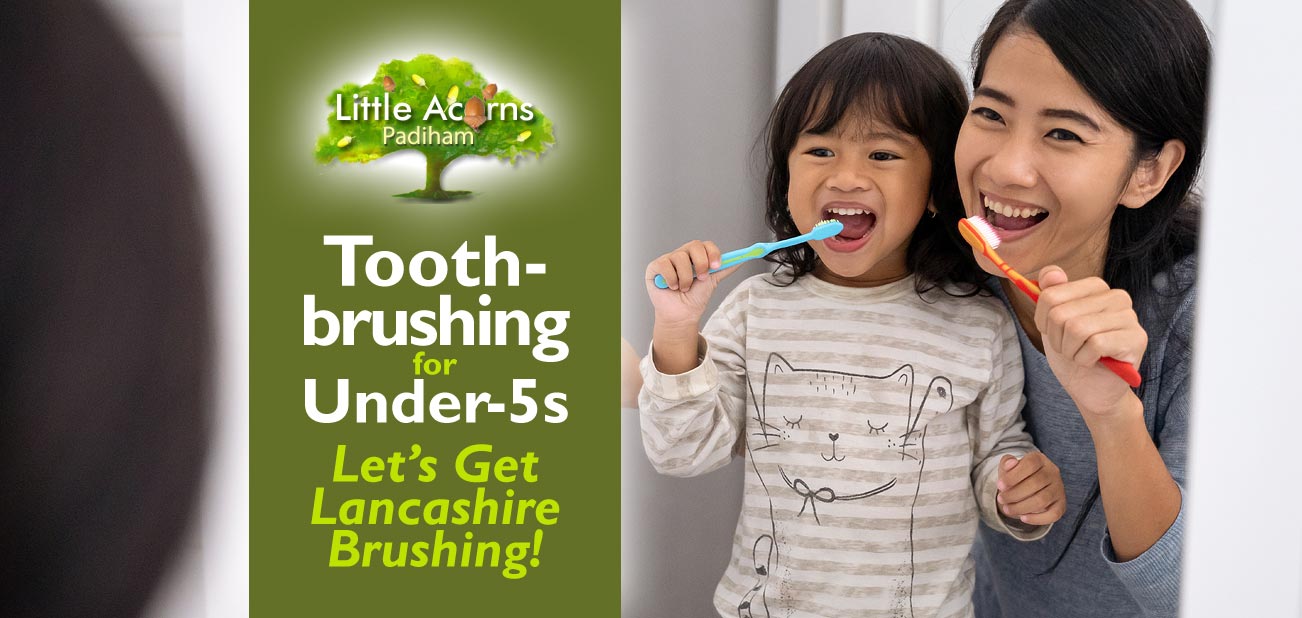
 Today we bring you a guide to toothbrushing for under-fives, inspired by children at Little Acorns Nursery taking part in Lancashire’s Let’s Get Lancashire Brushing campaign. An initiative of Lancashire County Council Public Health, the programme is designed to educate and encourage young children, including toddlers, to brush teeth for 2 minutes twice a day using age-appropriate toothpaste. What’s more, their message is that it’s never too young to begin and can even start before the first tooth has surfaced. At Little Acorns Nursery, the programme is supervised by staff and is intended to take place in tandem with toothbrushing at home — it does not replace it. Nursery staff guide children to establish a positive and proactive routine around toothbrushing, to foster good habits around oral hygiene, and thereby minimise tooth decay and problems associated with it.
Today we bring you a guide to toothbrushing for under-fives, inspired by children at Little Acorns Nursery taking part in Lancashire’s Let’s Get Lancashire Brushing campaign. An initiative of Lancashire County Council Public Health, the programme is designed to educate and encourage young children, including toddlers, to brush teeth for 2 minutes twice a day using age-appropriate toothpaste. What’s more, their message is that it’s never too young to begin and can even start before the first tooth has surfaced. At Little Acorns Nursery, the programme is supervised by staff and is intended to take place in tandem with toothbrushing at home — it does not replace it. Nursery staff guide children to establish a positive and proactive routine around toothbrushing, to foster good habits around oral hygiene, and thereby minimise tooth decay and problems associated with it.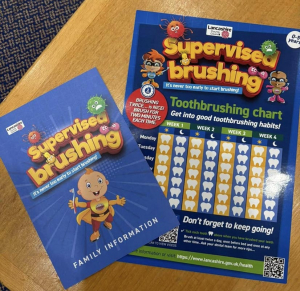
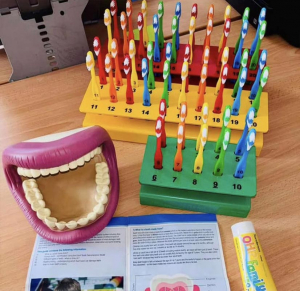
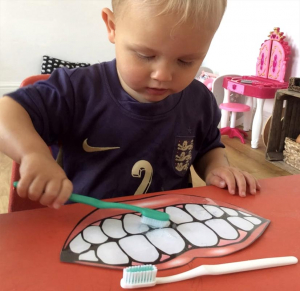
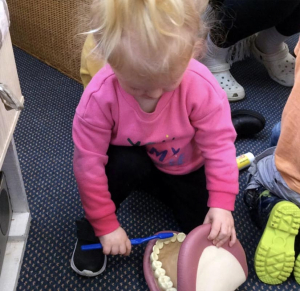

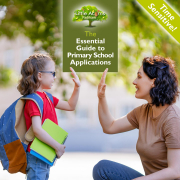
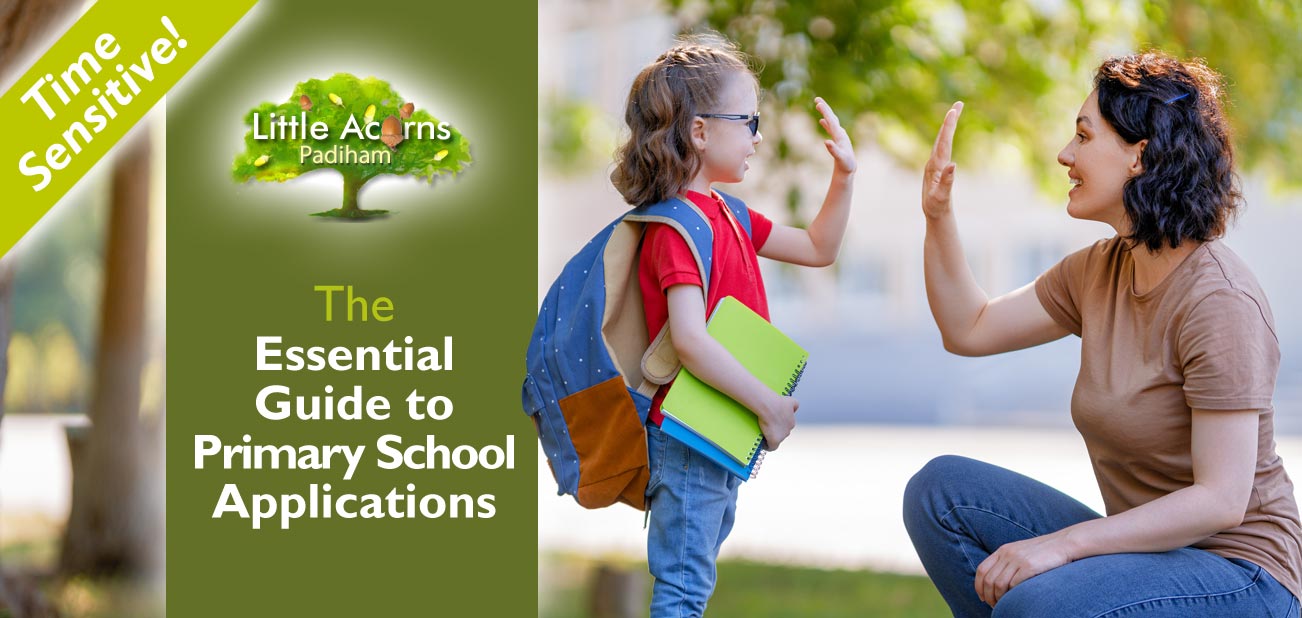
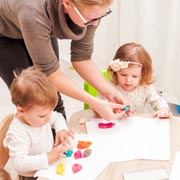 Primary school applications need to be submitted while the child is three or, at the very latest, has very recently had their fourth birthday. Because applications received on time are processed first, failure to apply by the due date means a child is less likely to receive an offer for their preferred school — places may no longer be available that late in the day.
Primary school applications need to be submitted while the child is three or, at the very latest, has very recently had their fourth birthday. Because applications received on time are processed first, failure to apply by the due date means a child is less likely to receive an offer for their preferred school — places may no longer be available that late in the day. Choosing a primary school for a child is an important step for any family. Somewhere conveniently close makes sense — and indeed is one of the most important criteria for offers, as we’ll see later. After all, you don’t want to be late dropping off or picking up your child because you’re stuck in a traffic jam miles away. Somewhere local will also mean your child has friends who are conveniently close by, which is another good thing. And, of course, if your child’s sibling already attends, then that school would usually be a natural first choice, assuming you’re happy with it of course.
Choosing a primary school for a child is an important step for any family. Somewhere conveniently close makes sense — and indeed is one of the most important criteria for offers, as we’ll see later. After all, you don’t want to be late dropping off or picking up your child because you’re stuck in a traffic jam miles away. Somewhere local will also mean your child has friends who are conveniently close by, which is another good thing. And, of course, if your child’s sibling already attends, then that school would usually be a natural first choice, assuming you’re happy with it of course. While the eligibility criteria for school places are not identical for all locations, there are several factors that are fairly standard. For example, schools closest to a child and those where a sibling already attends are usually favoured. Children may also be more likely to be accepted at a school where a parent has worked for 2 or more years. Church/faith schools are often also more likely to accept children who share the same faith.
While the eligibility criteria for school places are not identical for all locations, there are several factors that are fairly standard. For example, schools closest to a child and those where a sibling already attends are usually favoured. Children may also be more likely to be accepted at a school where a parent has worked for 2 or more years. Church/faith schools are often also more likely to accept children who share the same faith.  Primary school offers are first sent, by email, to those who applied on time and included a valid email address on their forms. Offers to such families are released on the morning of the 16th of April or the next working day if that happens to fall on a weekend or public holiday. Others who supplied an email address on their application, but who applied late in respect of the 15 January deadline, will usually receive offers via email the same day, although later on. Others, without an email address specified on applications, will receive offers via Second Class post, so are likely to see offers later than the 16th of April. Some local authorities, however, allow people to log onto a portal to view offers from that date. Note that those applying ‘in-year’ receive offers on different dates to the standard ones specified above.
Primary school offers are first sent, by email, to those who applied on time and included a valid email address on their forms. Offers to such families are released on the morning of the 16th of April or the next working day if that happens to fall on a weekend or public holiday. Others who supplied an email address on their application, but who applied late in respect of the 15 January deadline, will usually receive offers via email the same day, although later on. Others, without an email address specified on applications, will receive offers via Second Class post, so are likely to see offers later than the 16th of April. Some local authorities, however, allow people to log onto a portal to view offers from that date. Note that those applying ‘in-year’ receive offers on different dates to the standard ones specified above.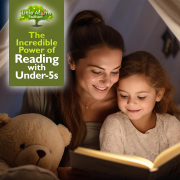
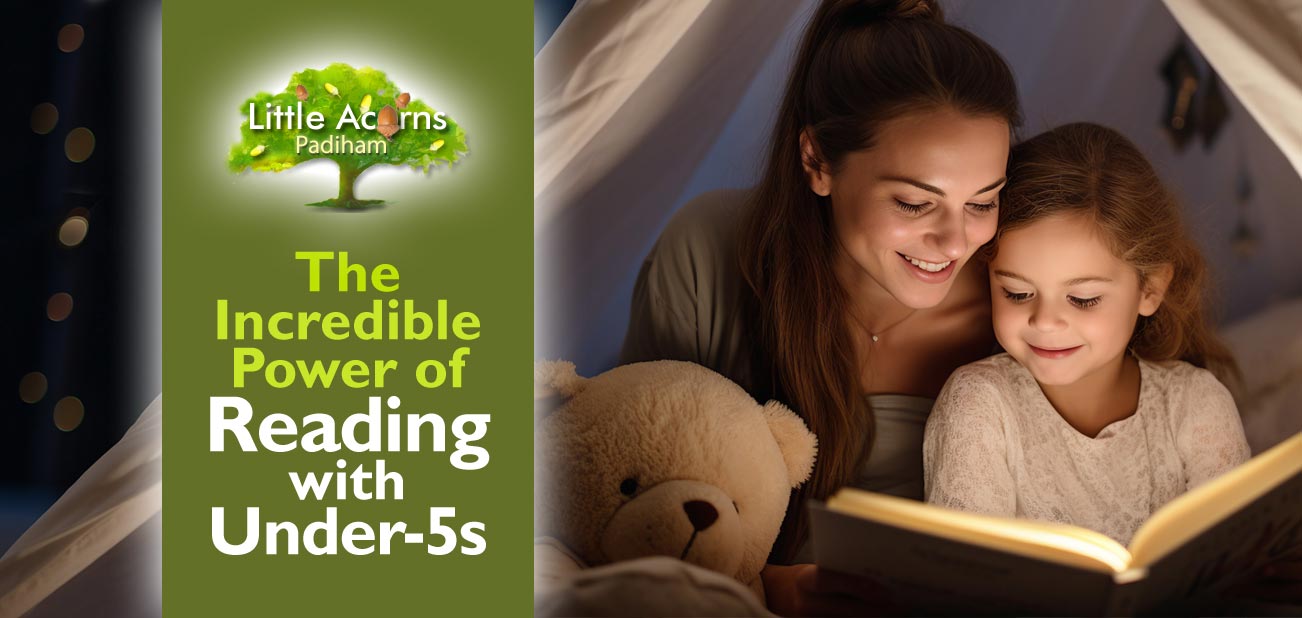
 Parents and caregivers have a simple yet incredibly powerful tool at their disposal to significantly boost the education of children under five: reading with them. In study after study, this simple activity has been shown to transform a child’s early years of education, giving children short-, medium-, and long-term benefits that even extend into adulthood. With that in mind, we take a look today at the many benefits and incredible power of reading with children, especially those under five.
Parents and caregivers have a simple yet incredibly powerful tool at their disposal to significantly boost the education of children under five: reading with them. In study after study, this simple activity has been shown to transform a child’s early years of education, giving children short-, medium-, and long-term benefits that even extend into adulthood. With that in mind, we take a look today at the many benefits and incredible power of reading with children, especially those under five. When you read to them, the cognitive benefits to children are profound and this is backed-up by findings from multiple studies. The benefits include improved memory, problem-solving, logical thinking, and memory skills. Even children’s attention spans are seen to improve when parents regularly read with them.
When you read to them, the cognitive benefits to children are profound and this is backed-up by findings from multiple studies. The benefits include improved memory, problem-solving, logical thinking, and memory skills. Even children’s attention spans are seen to improve when parents regularly read with them.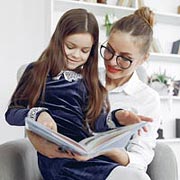 One of the biggest winners when reading with children is the boost to their language skills. Indeed, a 4-decade study (
One of the biggest winners when reading with children is the boost to their language skills. Indeed, a 4-decade study ( If children are to get the most from reading, it’s important to read with them. That’s all about making it interactive, engaging and fun to ensure children are involved. There are a number of ways to accomplish this and doing so will be the key to them gaining the most benefit from the activity.
If children are to get the most from reading, it’s important to read with them. That’s all about making it interactive, engaging and fun to ensure children are involved. There are a number of ways to accomplish this and doing so will be the key to them gaining the most benefit from the activity.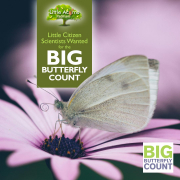
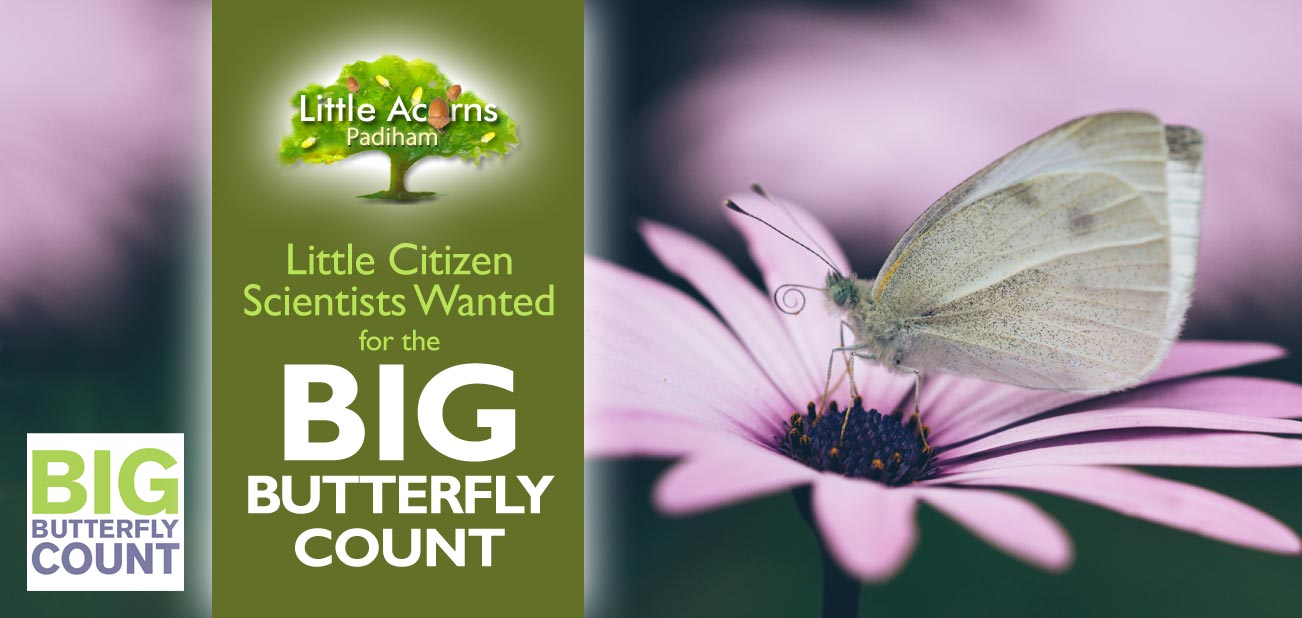
 Calling all little citizen scientists — we need your help — and parents too! During part of July and early August the Big Butterfly Count takes place across the UK and the more children and families that take part, the better. All it needs to take is 15 minutes and taking part will help butterflies, daytime-flying moths and the conservation of nature and biodiversity in general. What’s more, it’s a free, enjoyable, educational, and hugely worthwhile activity for children and families to take part in. In today’s post, we’ll tell you everything you need to know in order to take part in 2024’s Big Butterfly Count. Little citizen scientists: get ready!
Calling all little citizen scientists — we need your help — and parents too! During part of July and early August the Big Butterfly Count takes place across the UK and the more children and families that take part, the better. All it needs to take is 15 minutes and taking part will help butterflies, daytime-flying moths and the conservation of nature and biodiversity in general. What’s more, it’s a free, enjoyable, educational, and hugely worthwhile activity for children and families to take part in. In today’s post, we’ll tell you everything you need to know in order to take part in 2024’s Big Butterfly Count. Little citizen scientists: get ready! You’ll need a tiny bit of preparation, but it’s quick, free, and easy…
You’ll need a tiny bit of preparation, but it’s quick, free, and easy…

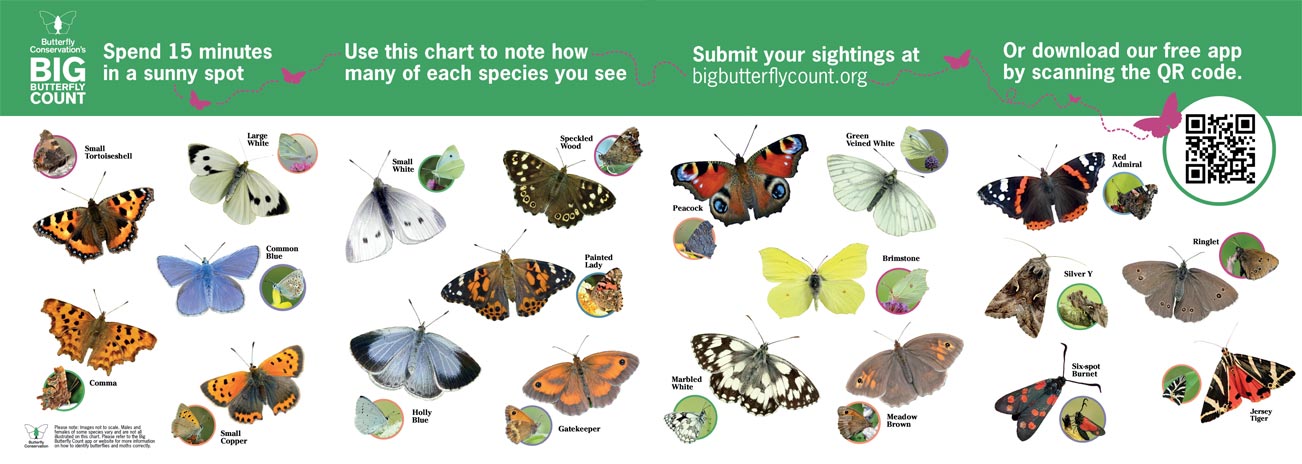
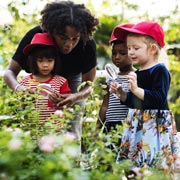 Once you’ve chosen a suitable location that has flowers blooming and is ideally sunny and sheltered, you are ready to count butterflies and submit them to the Big Butterfly Count survey.
Once you’ve chosen a suitable location that has flowers blooming and is ideally sunny and sheltered, you are ready to count butterflies and submit them to the Big Butterfly Count survey.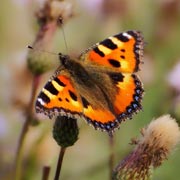 In addition to taking part in the Big Butterfly Count, children and families can help butterflies in other simple ways too. What’s more, they’re also fun, educational, and make the world a better place. Additional ways to help butterflies – and other pollinators – include:
In addition to taking part in the Big Butterfly Count, children and families can help butterflies in other simple ways too. What’s more, they’re also fun, educational, and make the world a better place. Additional ways to help butterflies – and other pollinators – include: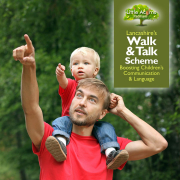
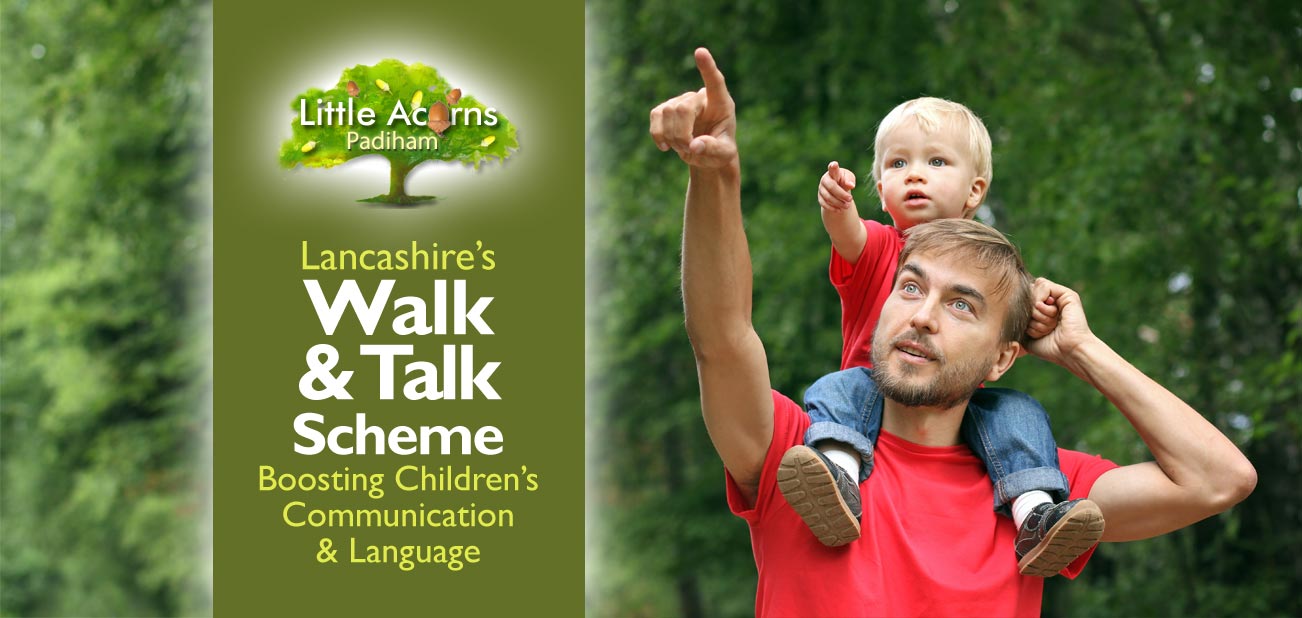
 Lancashire’s Walk & Talk Initiative is a scheme that’s wholeheartedly supported by the childcare practitioners at Little Acorns Nursery in Padiham. We encourage all Lancashire parents to take part too. It’s an initiative that is incredibly simple but has far-reaching benefits for children in their early years. Let’s take a look today at what Walk & Talk is all about, what its aims are, the benefits to children, and how families can get involved.
Lancashire’s Walk & Talk Initiative is a scheme that’s wholeheartedly supported by the childcare practitioners at Little Acorns Nursery in Padiham. We encourage all Lancashire parents to take part too. It’s an initiative that is incredibly simple but has far-reaching benefits for children in their early years. Let’s take a look today at what Walk & Talk is all about, what its aims are, the benefits to children, and how families can get involved.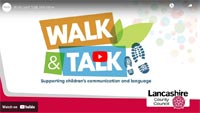
 a reduction in the ‘word gap’ — helping children learn new words and widen vocabulary;
a reduction in the ‘word gap’ — helping children learn new words and widen vocabulary;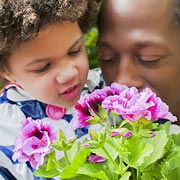 The scheme also aims to encourage children to use a variety of senses. These include, for example, sight, smell, touch, taste, hearing and, of course, active listening. When out on walks there are so many different things for children’s senses to be stimulated by and each lends itself to a conversation. Whether it’s the sound of birdsong, the feeling of the wind on their faces, the smell of freshly-cut grass on the breeze, the noise of traffic, the dazzlingly beautiful colours of blossom, or the mouth-watering smell of food cooking around the neighbourhood or town, walking is indeed a feast for the senses.
The scheme also aims to encourage children to use a variety of senses. These include, for example, sight, smell, touch, taste, hearing and, of course, active listening. When out on walks there are so many different things for children’s senses to be stimulated by and each lends itself to a conversation. Whether it’s the sound of birdsong, the feeling of the wind on their faces, the smell of freshly-cut grass on the breeze, the noise of traffic, the dazzlingly beautiful colours of blossom, or the mouth-watering smell of food cooking around the neighbourhood or town, walking is indeed a feast for the senses.
